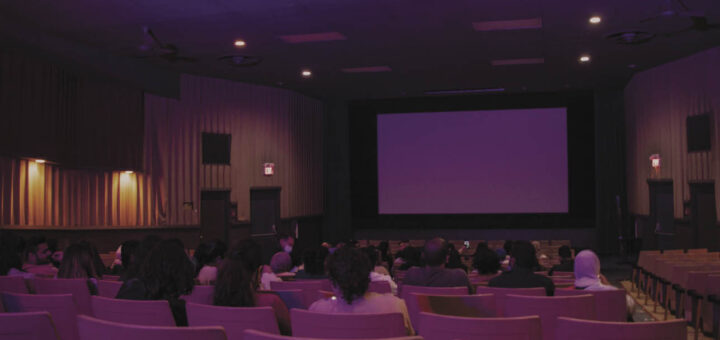Charsi: Uniquely Portraying the Experience of Being a Child of Immigrants

By Hadya Azeem, Contributor
“Chars” is an Urdu word from Pakistan meaning hashish (hash), synonymous with pot, cannabis, drugs, marijuana — “charsi” is a common phrase used to describe someone who partakes in the usage of marijuana; a stoner.
Charsi is also the name of Amair Javaid’s newest short film, which premiered at the Globe Cinema on Sept. 23, 2021. The screening included showings of some of his other works as well, including: Dear Palestine, The Hypocrite and Javaid’s most well-known work Hafiz.
Charsi follows the story of Usman portrayed by Omar Javaid, an engineering graduate struggling to find work during an economic recession. The recession puts a strain on his whole family, so to put his mind at ease Usman uses weed as an escape.
“Charsi is a portrait of this generational disorder and a reflection of where identity begins and ends.” Javaid said in the press release for the film.
This short film uses sound to convey emotion and because it has such a heavy presence in the film the sound design becomes somewhat of a character itself.
“The goal with the sound was to kind of step into the mind of the character,” Javaid said. “So when he is getting high and has that buzz, [the sound] takes on more of a hip-hop style, and when he is overwhelmed [the sound] really takes over the soundtrack.”
Javaid mixed and created the entire soundtrack on his own during the COVID-19 pandemic, and it went on to win “Overall Best Sound” at the 2020 Stinger Awards. The film’s lead Omar Javaid also won an award for “Best Performance.”
Charsi is Javaid’s second big short film, his first being Hafiz which debuted in 2019. Hafiz follows the life of Hafiz, a new Pakistani immigrant who is awaiting his exam results to practice as a doctor in Canada. It portrays the financial strain, isolation and homesickness that many first-generation immigrants experience.
Charsi follows Usman who was born to Pakistani immigrant parents but brought up in Canada, struggling to get a job. It portrays the financial stress, misunderstandings, and differing forms of coping and escapism between generations.
“Charsi is a juxtaposition of Hafiz,” Javaid says. “It’s like putting the life of a second-generation up against a first-generation immigrant.”
Another difference between the two films are the creative approaches Javaid had taken in producing them. Javaid explains that he was able to be more creative with Charsi, using new and different techniques.
“After I finished Hafiz, I’m like, here’s my chance to experiment. See what muscles I can flex,” Javaid said. “You have a bunch of different characters now, instead of focusing on just one.”
The primary focus of Hafiz is on the main character Hafiz, but Charsi follows the stories of the whole family and their struggles.
“I’m passionate about this stuff,” Javaid said. “I don’t see films like this that highlight the experience of South Asian, or more broadly any second-generation immigrant families out there.”
Javaid hopes to keep telling the stories of South Asian immigrants in the future, and announced at the premier that he plans to do this through continuing the story of Hafiz; by turning the short into a full-length feature film.
Javaid is planning a kickstarter to help fund Hafiz as a full-length project.




